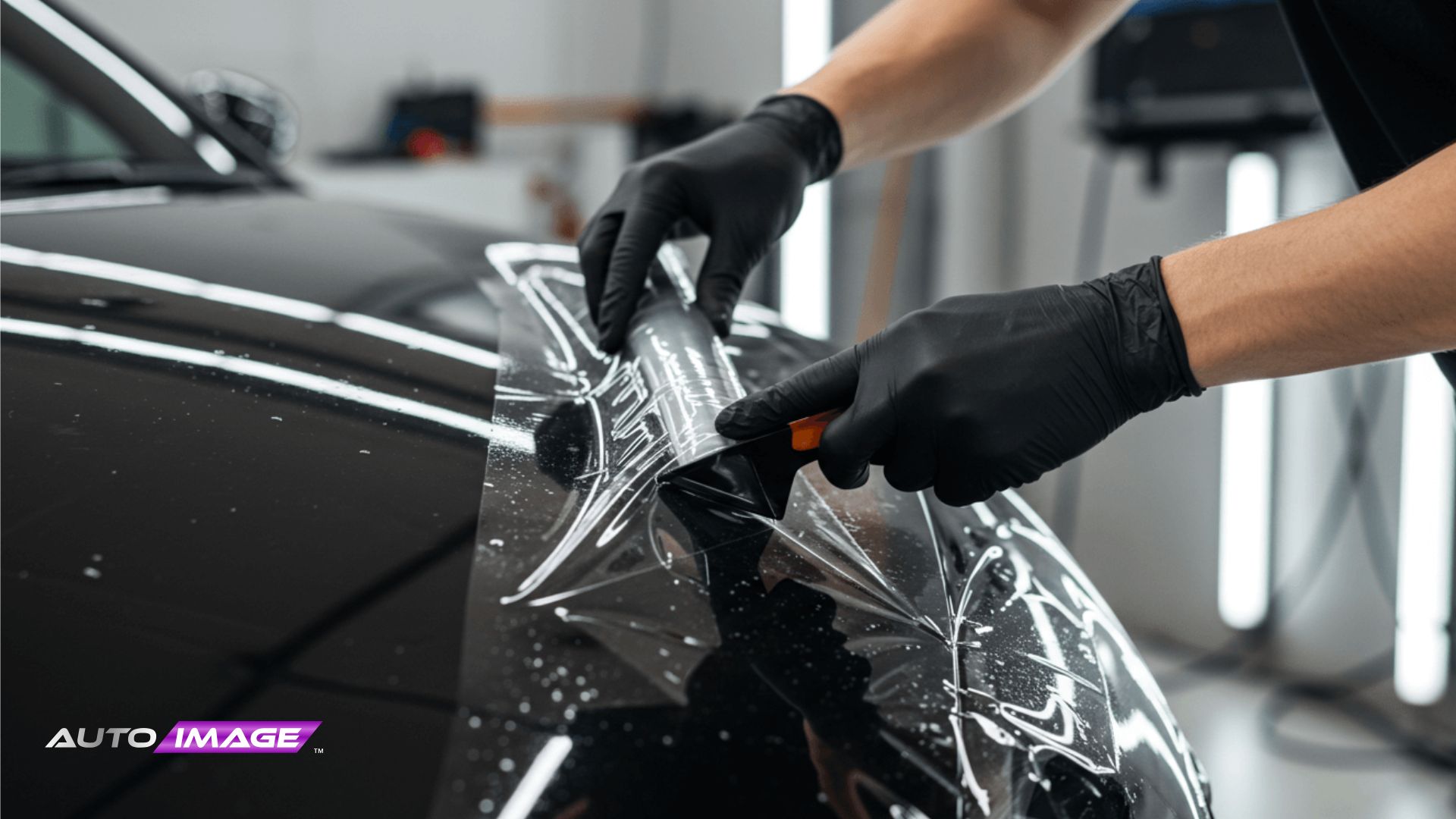If you’re a car owner in New Jersey, you’ve likely considered window tinting at some point. Whether it’s to reduce glare, improve privacy, or keep your car cooler during the summer, automotive window tinting offers numerous benefits. But with strict New Jersey car window tint laws, is it really worth the investment?
In this guide, we’ll explain window tinting, how it works, its benefits, and whether it’s a smart choice for drivers in New Jersey. We’ll also cover legal restrictions, different tinting options, and why professional installation is the best way to ensure compliance and long-term performance.
What is Window Tinting?
Window tinting involves applying a thin, transparent or darkened film to a vehicle’s glass surfaces. This solar control window film helps enhance privacy, reduce heat and glare, and block harmful UV rays.
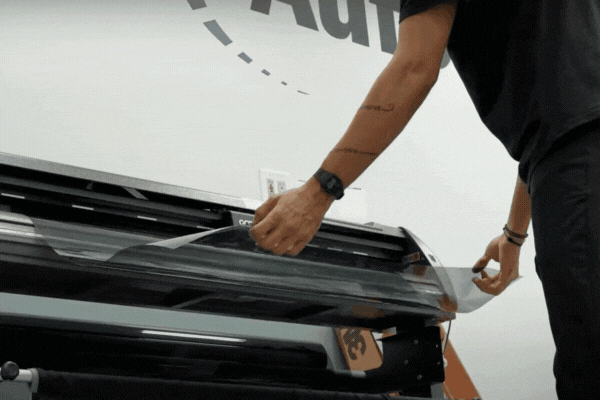
How Does Window Tinting Work?
Window tint films contain multiple layers designed to filter light and reject infrared heat. Depending on the material used, tint films can:
- Reduce Visible Light Transmission (VLT) to control brightness and glare.
- Block UV radiation, protecting passengers and car interiors.
- Reflect infrared heat, keeping the car cooler.
Types of Window Tint Films
There are several types of automotive window films, each offering different benefits:
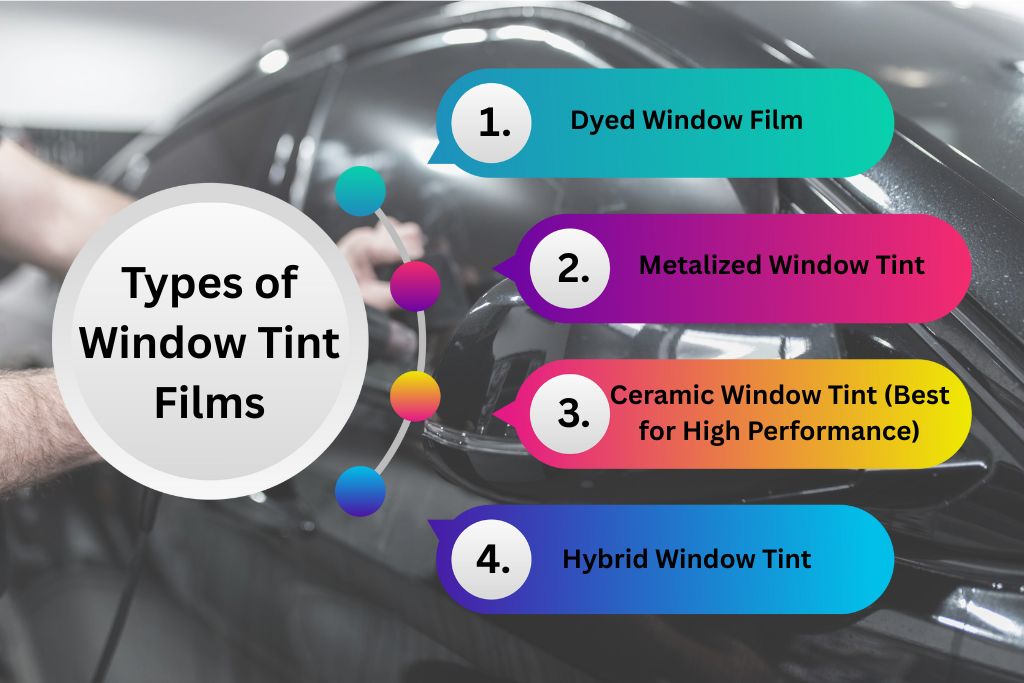
1. Dyed Window Film
✔ Budget-friendly option.
✔ Absorbs solar heat to keep the car cooler.
✔ Provides a matte appearance but may fade over time.
2. Metalized Window Tint
✔ Contains metallic particles for improved heat rejection.
✔ Enhances window strength but may interfere with GPS and radio signals.
3. Ceramic Window Tint (Best for High Performance)
✔ Uses advanced nanotechnology for UV and infrared rejection.
✔ Does not interfere with electronics.
✔ Provides superior durability and clarity.
4. Hybrid Window Tint
✔ A mix of dyed and metalized films, offering balanced performance.
📌 Looking for the best window tint for your needs? Read our guide: 4 Qualities to Look for When Choosing Window Tint in New Jersey.
The Benefits of Window Tinting
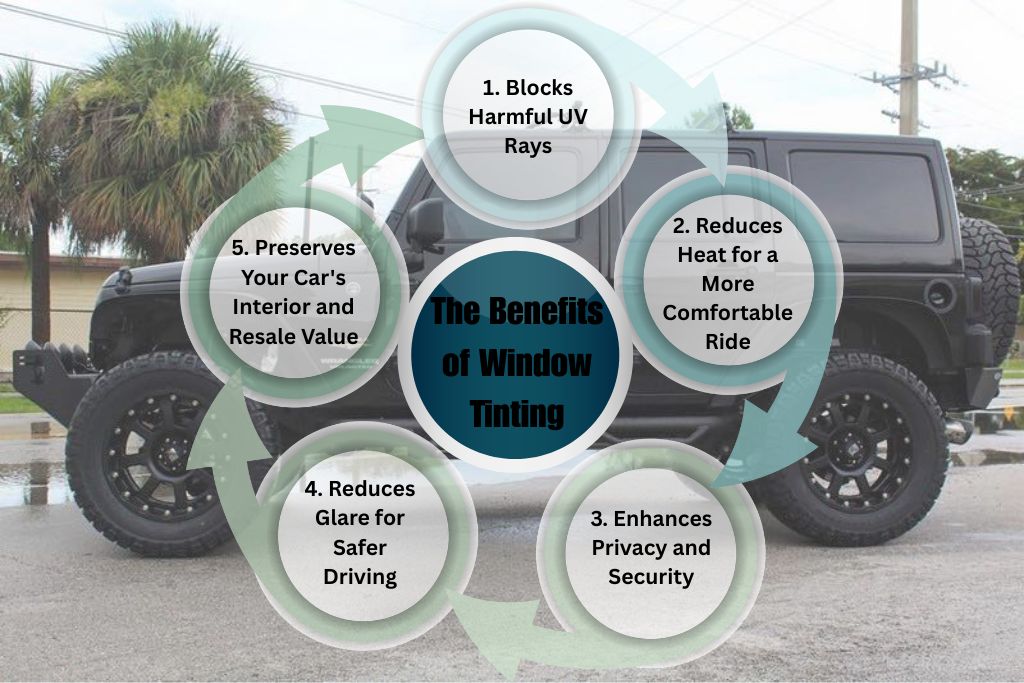
1. Blocks Harmful UV Rays
Excessive UV exposure can cause skin damage and premature aging. High-quality UV protection films block up to 99% of UV radiation, safeguarding both passengers and interiors from sun damage.
📌 Did you know window tinting can help prevent skin cancer? Learn more: Did You Know Window Tint Can Protect You from Certain Skin Cancers?.
2. Reduces Heat for a More Comfortable Ride
New Jersey summers can be brutal. Heat rejection window films can reduce interior temperatures by up to 60%, making your vehicle more comfortable and reducing the need for air conditioning, improving fuel efficiency.
3. Enhances Privacy and Security
A privacy window tint prevents outsiders from easily seeing into your vehicle, reducing the risk of theft and unwanted attention.
4. Reduces Glare for Safer Driving
Glare reduction tint minimizes distractions from sunlight, streetlights, and headlights, making nighttime driving easier.
5. Preserves Your Car’s Interior and Resale Value
Tinted windows help prevent fading and cracking of upholstery, ensuring your car’s interior stays in great shape. This increases the resale value of your vehicle.
📌 Find out how window tint affects vehicle value: The Impact of Window Tint on Car Resale Value and Condition.
New Jersey Window Tint Laws: What You Need to Know
Before tinting your windows, it’s crucial to understand New Jersey’s window tint regulations to avoid fines.
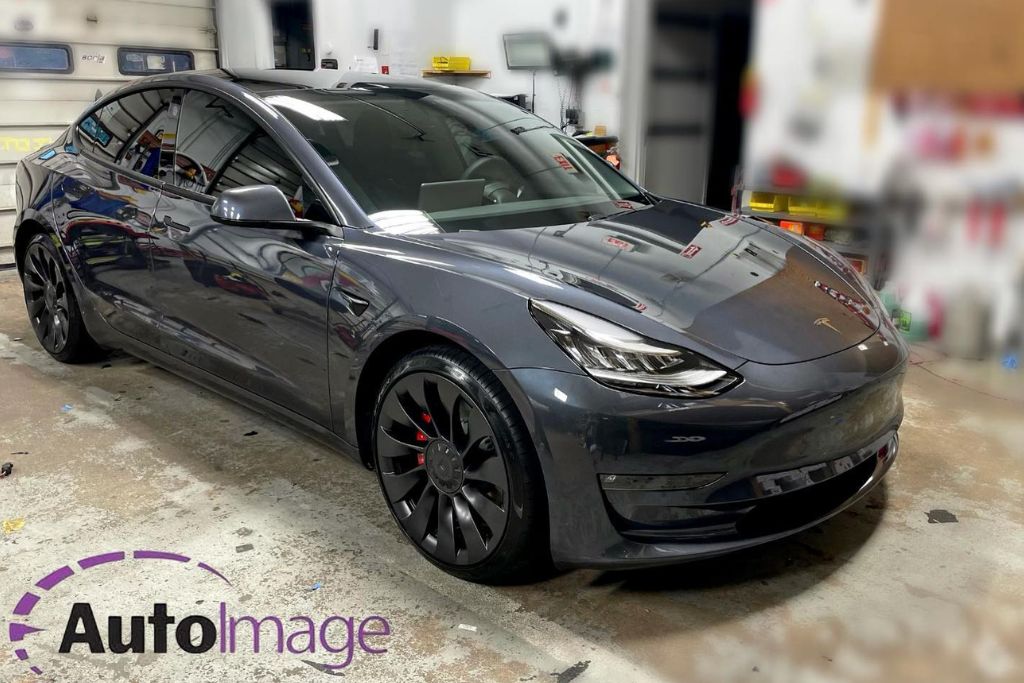
Legal Tint Limits in New Jersey
🚫 Windshield & Front Side Windows: Tint is not allowed unless you have a medical exemption.
✅ Rear & Back Side Windows: Any tint darkness is legal.
🚫 Reflective or Metallic Tints: Banned in New Jersey.
📌 Looking for legal tinting options? Check out our guide: 4 Qualities to Look for When Choosing Window Tint in New Jersey.
Medical Exemptions for Window Tint
Drivers with certain medical conditions that require UV protection can apply for an exemption from the New Jersey Motor Vehicle Commission (MVC).
What Happens If You Violate Tint Laws?
- You may face fines and citations.
- Police officers can issue a “fix-it” ticket, requiring removal.
- Non-compliant tinting may lead to inspection failures.
📌 Discover the best options for New Jersey drivers: 6 Reasons to Get Professional Window Tint Installation Before Summer Heats Up.
Is Window Tinting Worth It in New Jersey?
While front-window tinting is restricted in NJ, tinting your rear and back side windows is a great investment. Here’s why:
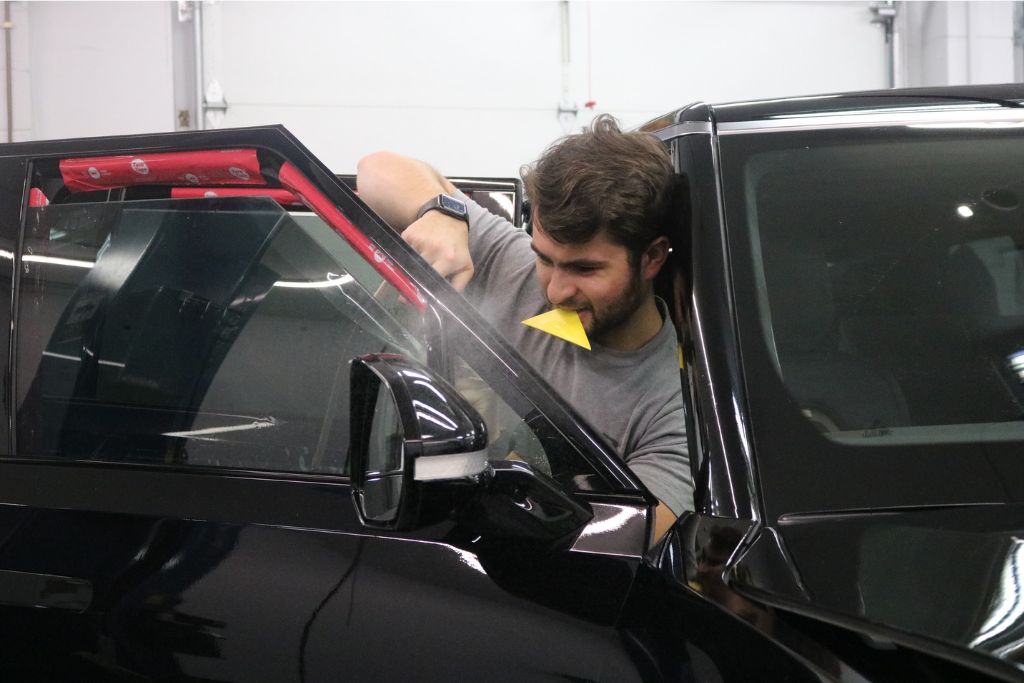
✅ When Window Tinting is a Good Investment
✔ You frequently drive in bright sunlight and want glare reduction.
✔ You want to keep your car cooler in summer.
✔ You want to increase privacy and security.
✔ You want to protect your interior from sun damage.
❌ When Window Tinting Might Not Be Worth It
🚫 You’re considering illegal tinting on front windows, which could lead to fines.
🚫 You don’t drive often and don’t experience heat or glare issues.
Why Choose Professional Window Tint Installation?
Working with a trusted professional ensures maximum benefits, legal compliance, and high-quality installation.
📌 Schedule your installation today: 3 Reasons to Get Professional Window Tint Installation Before Summer Heats Up.

1. Precision Installation and High-Quality Products
At Auto Image, we use premium brands like 3M and SolarGard, ensuring long-lasting performance and compliance with state laws.
2. Warranty and Long-Term Value
Professional installation typically includes warranties, protecting your investment.
3. Ensuring Legal Compliance
Experts help you choose the correct tint darkness percentage to stay within New Jersey’s laws.
Conclusion
Window tinting offers numerous benefits, from UV protection and glare reduction to heat rejection and privacy. While New Jersey has strict regulations on front window tinting, tinting rear and side windows remains a significant investment.
For high-quality, legal window tinting, trust Auto Image. Our expert team ensures precise installation using top-tier brands like 3M and SolarGard.
🔗 Get a Quote for Professional Window Tinting in New Jersey 🚗💨
Frequently Asked Questions (FAQs)
Q: How does window tinting reduce interior heat?
A: Infrared rejection films reflect heat, keeping the car cooler.
Q: What are the different types of window tint?
A: Ceramic, metalized, dyed, and hybrid films each offer unique benefits.
Q: What are the consequences of illegal window tinting in New Jersey?
A: Fines, warnings, and mandatory tint removal.
Q: How can I ensure my window tint is legal in NJ?
A: Work with a professional installer like Auto Image, who ensures compliance.
